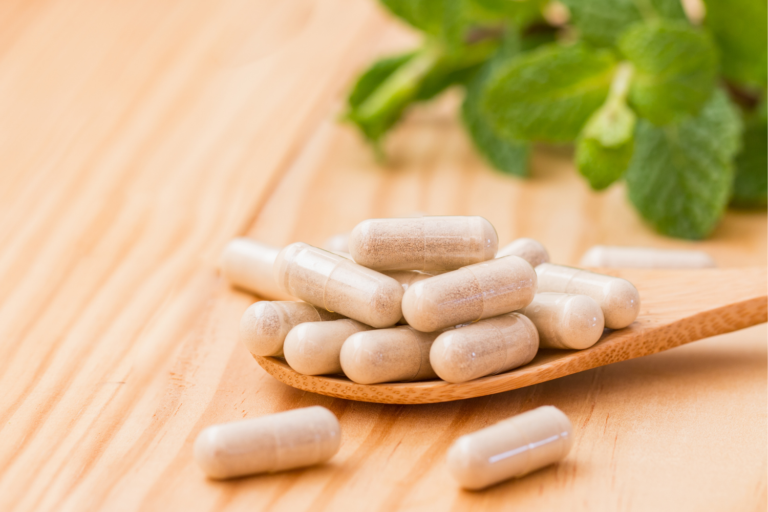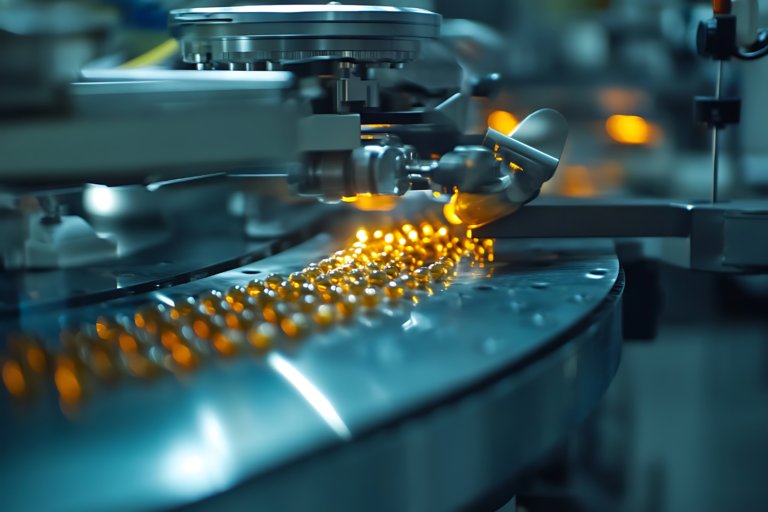Most supplement brands underestimate softgel complexity. Your oil-based formula needs specific viscosity ranges. Your manufacturer needs pharmaceutical-grade encapsulation lines. Your batch minimums start at 250,000 units. Getting these specifications wrong burns through $50,000 before you notice the problem. This guide maps every decision from formula viscosity to gelatin sourcing to production scheduling.

- Our Mission
Your softgel formula has seventeen variables that affect manufacturability. Viscosity, API concentration, fill weight tolerances. Miss one specification and you'll scrap 250,000 units. We show you exactly which specs matter and how to lock them down before committing capital.
Softgel manufacturers speak in kilopoise and mesh sizes. They quote in "per thousand" but charge setup fees that triple your unit cost. We translate their technical requirements into plain English. No more signing contracts you half-understand.
Armed with our pre-vetted RFP templates, minimum order quantities by tier, and actual cost breakdowns from forty manufacturers, you negotiate from strength. You'll know which "industry standard" terms are actually negotiable. Control stays where it belongs.
- Softgel Manufacturing Fundamentals
Critical Decisions Softgel Brands Must Navigate
Formula Compatibility
Softgel manufacturers reject 40% of formulas on first submission. Oil viscosity outside 100-1,000 cP range. Active ingredients that react with gelatin. Fill weights that exceed shell capacity. We decode manufacturer spec sheets to identify deal-breakers before you waste months on reformulation. Learn which excipients work, what concentrations hold stable, and how pH affects shell integrity. Understanding these constraints early prevents the $75,000 mistake of tooling incompatible formulas.
Manufacturer Selection
Finding the right softgel manufacturer requires more than comparing price quotes. FDA warning letters. Actual versus claimed capacity. Hidden setup fees that double your costs. We map 47 North American facilities by their real capabilities: which handle bovine-free, who runs small batches under 100,000 units, and whose lead times actually hit 12 weeks. Understanding each manufacturer's true strengths prevents costly transfers, failed audits, and blown launch dates.
Cost Structure Mastery
Softgel pricing hides seventeen line items beyond unit cost. Tooling charges of $8,000-15,000. Stability testing at $3,500 per timepoint. Artwork setup, capsule band application, bottling minimums. Manufacturers quote differently but charge similarly. We expose which fees are negotiable, what volumes trigger price breaks, and where margins really live. Brands who understand the full cost structure save 23% on average and avoid the surprise invoices that kill cash flow.
The Softgel Manufacturing Process
Formula Assessment
Every softgel project starts with brutal formula honesty. Your 500mg fish oil needs 1,200mg of shell material. Your CBD extract won’t survive standard heat sealing. That proprietary blend separates at room temperature. We evaluate your formula against 23 manufacturability criteria before you spend a dollar on development. This assessment reveals which adjustments cost $5,000 versus which trigger complete reformulation at $50,000.
Specification Development
Professional formulators build your spec sheet from raw material certificates to finished product testing. Particle size at 80 mesh. Peroxide values under 5 meq/kg. Fill weight tolerance at ±5%. These specifications determine which of 47 manufacturers can actually produce your product. We identify the critical control points, set realistic ranges, and document everything in manufacturer-ready language that prevents costly misunderstandings.
Manufacturer Matching
Smart vendor selection goes beyond price quotes. Facility A runs your 100,000-unit pilot for $0.18 each but needs 16-week lead times. Facility B charges $0.24 but delivers in 8 weeks with lower minimums. Facility C has the only bovine-free line west of Chicago. We map your requirements against real manufacturer capabilities, audit their FDA compliance history, and verify their claimed capacities before you sign anything.
Production & Launch
This final phase transforms signed contracts into sellable inventory. Tooling takes 6-8 weeks. First article samples need approval. Stability protocols run concurrent with production. Scale-up reveals whether your lab-scale formula actually works at 250,000 units. Understanding these milestones prevents the panicked calls about missed launch dates and helps you plan inventory financing around real production schedules.

